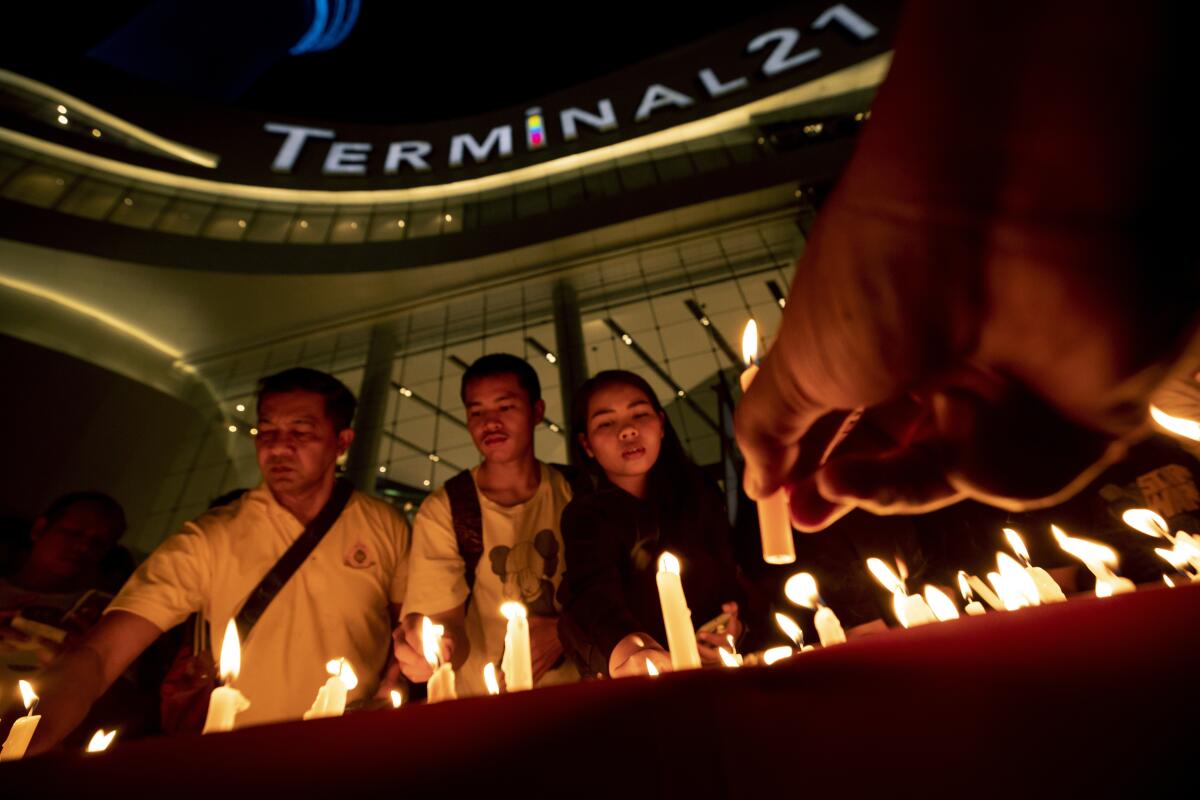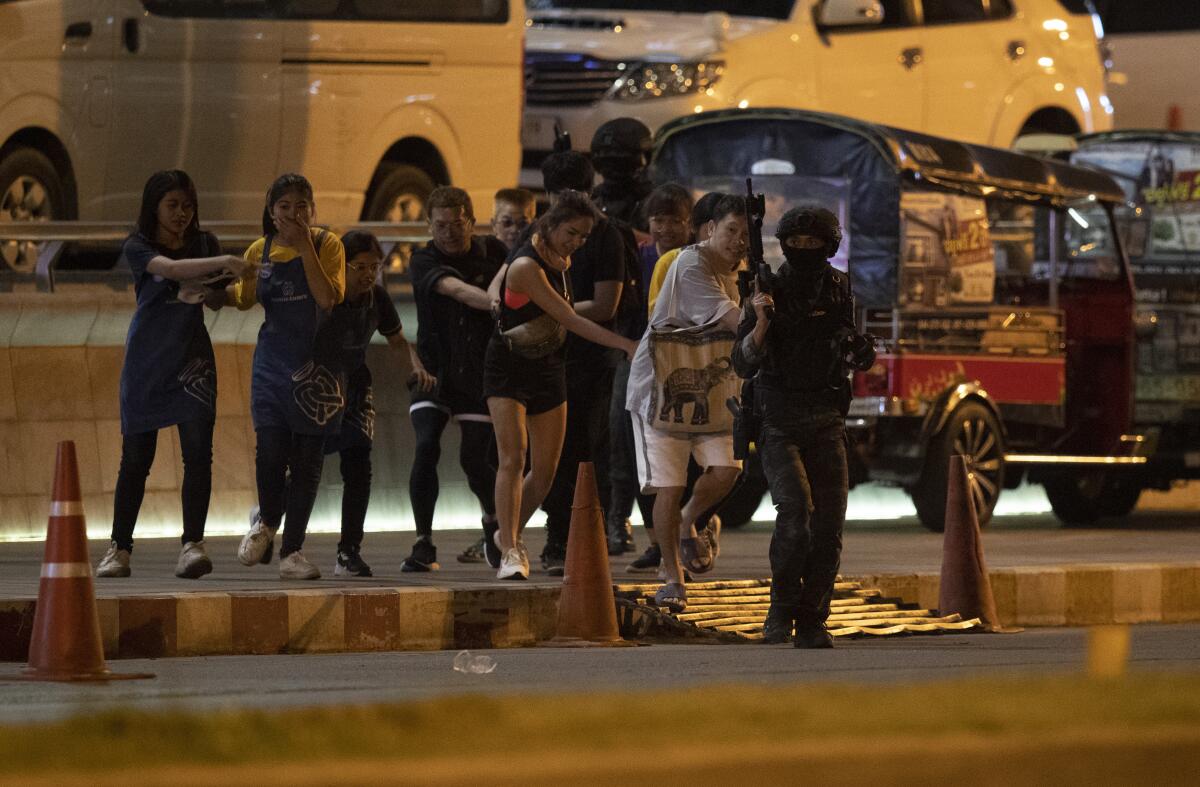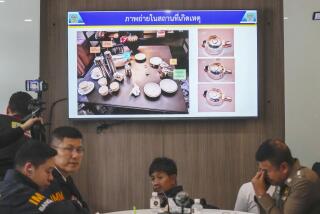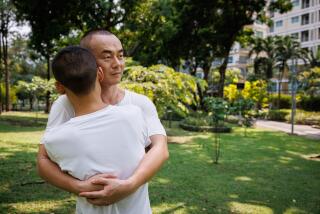After a rare mass shooting in Thailand, something just as unusual: Therapy

- Share via
BANGKOK, Thailand — When a soldier went on a shooting rampage at a mall in northeastern Thailand last month, Ponglert Supatwanich and his 17-year-old son survived by hiding in a post office for six hours. Though shaken in the aftermath, he did not think about seeing a therapist.
But help came to him, turning the 55-year-old hotel owner into a believer in mental health treatment in the Buddhist “land of smiles,” where experts say lingering stigmas around psychological treatment stop many from seeking professional help.
“In Thailand people don’t want to go to a psychologist. If you go, it means you are crazy,” he said in an interview weeks after the Feb. 8 rampage that left 29 people dead in and around the Terminal 21 mall in the city of Korat.
“We don’t express our feelings to each other.”
In their modern history, Thais have endured coups, violent street protests, army crackdowns and natural disasters. But the mall shooting was widely seen as unprecedented, an anomaly that forced national reflection. Authorities said a 31-year-old soldier, angered by a property deal gone awry, shot at least one person on a military base near Korat, raided a weapons depot and stole a Humvee, and then opened fire at a temple and the nearby shopping mall where he picked off fleeing shoppers.
Thai police and soldiers cornered him in a lower floor of the mall, shooting him dead several hours after the siege began.

Americans may have grown inured to the details of such attacks, but Thais were transfixed by images of candlelight vigils and emergency responders, by criticism of social media platforms after the shooter live-streamed parts of the attack, and by the failure of the political establishment to push for gun control reforms.
Once the media glare died down, a group of healthcare practitioners studying art therapy in Bangkok traveled to Korat to speak with survivors. They did not know what the response would be, but dozens of people showed up to the hastily assembled, two-day project in late February, where they sat for sessions, drew pictures and took part in therapeutic drum circles.
“First we thought people would say, ‘Oh it’s odd,’” said professor Bussakorn Binson, dean of the faculty of fine and applied arts at Bangkok’s Chulalongkorn University, who helped organize the sessions. “But so many people came, we had to do double work.”
Bussakorn, an ethnomusicologist better known as Jane, has for several years collaborated with an Israeli professor, Rachel Lev-Wiesel of the University of Haifa, to organize arts therapy training courses and publish research. Next year, they plan to launch Thailand’s first graduate degree in creative art therapy at Chulalongkorn University.
Their efforts are not always embraced.
In 2018, the pair attempted to contact representatives of the 12 Thai boys and their soccer coach who were rescued from a cave after being stuck inside for 18 days. The boys were worldwide celebrities, appeared on talk shows and traveled the world visiting famous sports teams — but when the professors inquired about helping them process the psychological toll of the ordeal, they were rebuffed.
“They said they were all fine,” Bussakorn said.
In their research in Israel and Thailand, the pair said they have noticed differences in how the cultures perceive themselves. In one experiment in which students were asked to draw self-portraits, Israelis sketched their whole bodies, including the feet, which Lev-Wiesel said indicated how the ideas of standing one’s ground and defending against enemies were ingrained in Jews.
The Thai students, by contrast, did not draw full human forms — their portraits consisted mainly of heads and smiling faces.
“Israelis do not smile in their picture,” Lev-Wiesel said in an interview. Though it was a small sample, the researchers speculated that Thais placed more value on being perceived as friendly and polite, to preserve harmonious relationships.
When the shooting in Korat happened, the pair were in Bangkok and recruited some of their arts therapy students to help. Trained as a clinical psychologist, 27-year-old Nisara Jaroenkajornkij was thrilled to have a chance to apply her skills. She knew some participants would be reticent because she has long encountered skepticism of her field.
“Psycho-what? What are you doing with your life?” she said, mimicking the usual response.
She feared Korat survivors might dismiss signs of trauma.
“If they have nightmares or small symptoms of PTSD they will just ignore it and say, ‘Oh it’s just a nightmare; it will go away someday,’” she said.
One woman she spoke to said she sensed that her family was growing tired of hearing her talk about the shooting. The picture she drew was a face with a zipper on the mouth. Some participants seemed unsure how to act in the therapy session. After discussing the event with another woman, Nisara was asked to take a selfie with her.
“They don’t really know what to do… and if they become emotional it will be just a little tear,” Nisara said.
Their sketches varied. Some depicted the rooms where people hid during the shooting as prisons. Others drew different scenes as other traumatic incidents from their lives resurfaced.
The hotel owner Ponglert — who donated rooms for the sessions — preferred to speak about the experience rather than sketch. He recalled how he and his son rushed to an indoor post office, turned off the lights and hunkered with three women as automatic gunfire sporadically erupted nearby. He tried to be comforting to the strangers with whom they hid.
But throughout the entire six hours, they didn’t learn each other’s names.
When the floor was evacuated, Ponglert remembered stepping outside and feeling the pleasure of fresh air. He declined a ride home and decided to walk. But when recalling the night of terror days later, his mind flashed back to earlier events: a death in the family decades ago, anxiety over how long it took him to graduate from university.
Ponglert said he realized the shooting had redirected him to a “scar in my thoughts.”
He said he now wants to encourage others, especially in Korat, to get help and not bury their emotions.
“We must find more people in this situation,” he said.
Freeman is a special correspondent.
More to Read
Sign up for Essential California
The most important California stories and recommendations in your inbox every morning.
You may occasionally receive promotional content from the Los Angeles Times.













